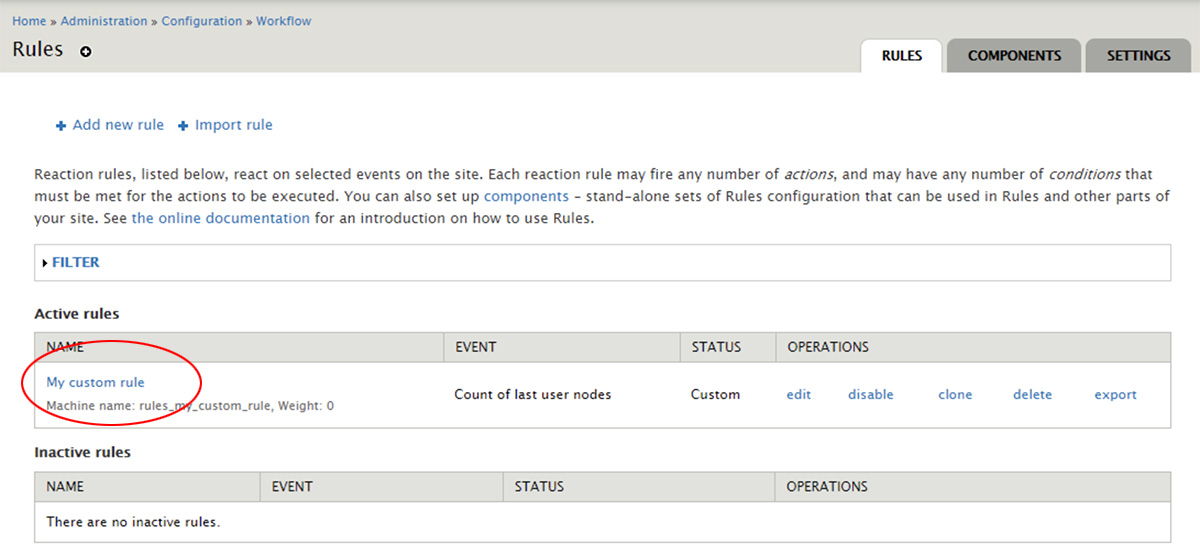

Because of its simplicity, it has little flexibility.
Drupal rules hardcode selector download#
This module is extremely easy to set up just download and enable the module and fill out the configuration settings. The settings for this module are in an odd location, in a tab on the content management page. Adding the node content to the message by using tokens.Creating a notification message to send when content is created or changed.Selecting either a hard-coded list of email addresses OR a list of roles that should receive notifications.Selecting roles that have permissions to generate notifications.Choosing whether to send notifications only on node creation or also on updates, and whether to notify about unpublished nodes or only published nodes.Selecting content types that should generate notifications.Some of the capabilities of this module include: Since you can send notifications to users by role, you could create a new ‘email’ role and assign that role to anyone who should be notified. The configuration allows you to choose either a hard-coded list of email recipients or send notifications to all users that have one or more specified roles. The Admin Content Notification module is designed to notify administrators when new content is created, but it can also be used to notify any group of users, administrators or not. Note: There are also several ways to use the Rules module (possibly in conjunction with one of these solutions), but I did not investigate Rules-based solutions in this collection of ideas. While I did not review all of them, below are reviews of a few of the most widely-used solutions. This could encompass anything from a very simple system, like a fixed list of users or roles who are always notified, all the way to complicated systems that allow users to select which content types they want to be notified about, maybe even allowing them to subscribe and unsubscribe from specific nodes.Ĭlarifying the answers to these questions will help define the solution you need and which module(s) might be options for your situation. There are dozens of modules that have some sort of ability to send emails to users.This could also be a digest of multiple changes over time. It might include a summary of the node content, or the entire content of the node could be sent in the email. Notifications could be just messages saying that the node has been created, changed, or published.Is it both possible and feasible for the web server to be responsible for delivering the notification? Does a separate server need to deliver the mail, or perhaps a third party mail delivery service needs to be used?Īssuming that they should be notified by email, there could also be a long list of other options available.This could be immediate, sent to a queue and processed on cron, or scheduled for a specific time.A message might be initiated every time the action happens, or postponed and accumulated into a digest of activity that goes out once a day or once a week or once a month. A little simpler, but it could be when the node is created, when it is published, or when it is commented on.So many options! It could be an editor, the author, all site users, all site users of a given role, a specific list of users, anyone who commented on the node, or anyone who subscribed to the node.The first step in assessing solutions is to identify the specific need by asking the following questions: Who needs to be notified? Mail the content of a node to site users when content is created or updated.Send notifications to site users when content is commented on.Send notifications to administrators when content is created or updated.Send notifications to authors when users comment on it.Send notifications to authors when their content is published.This sounds basic, but there are a lot of questions. What exactly needs to be accomplished? Some examples could include: Site owners and administrators often want to send emails to users telling them about content creation or changes.


 0 kommentar(er)
0 kommentar(er)
